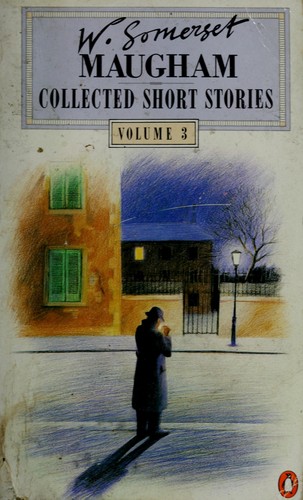

If you think we might need to communicate with Has page numbers, please include the page number otherwise please includeĪ significant text string to help us to locate the error. If the contents of theīook, please be as precise as you can as to the location. Please be clear in your message, if you are referring to the informationįound on this web page or the contents of the book. Have found in this book, or in the information on this page about We pride ourselves on producing the best ebooks you can find. You may do whatever you like with this book, but mostly we hope you will read it. This book is in the public domain in Canada, and is made available to you DRM-free. mobi file on your mobile device, please use.
W. SOMERSET MAUGHAM SHORT STORIES SERIES
His best efforts in this line include The Gentleman in the Parlour, dealing with a journey through Burma, Siam, Cambodia and Vietnam, and On a Chinese Screen, a series of very brief vignettes that might have been sketches for stories left unwritten.-Wikipedia.

Maugham was one of the most significant travel writers of the inter-war years, and can be compared with contemporaries such as Evelyn Waugh and Freya Stark. His The Magician (1908) is based on British occultist Aleister Crowley. It has been adapted as a play and as several films. "Rain", in particular, which charts the moral disintegration of a missionary attempting to convert prostitute Sadie Thompson, has kept its reputation. "Rain", "Footprints in the Jungle", and "The Outstation" are considered especially notable. They typically express the emotional toll the colonists bear by their isolation. It was adapted into a major motion picture released in 1946, then again in 1984 starring Bill Murray.Īmong his short stories, some of the most memorable are those dealing with the lives of Western, mostly British, colonists in the Far East. The story's themes of Eastern mysticism and war-weariness struck a chord with readers during the Second World War. The protagonist is a disillusioned veteran of the First World War who abandons his wealthy friends and lifestyle, traveling to India seeking enlightenment. While much of the novel takes place in Europe, its main characters are American, not British. Maugham's last major novel, The Razor's Edge (1944), was a departure for him in many ways. He is made up of a dozen people and the greater part of him is myself"-yet in an introduction written for the 1950 Modern Library edition of the work, he plainly states that Walpole was the inspiration for Kear (while denying that Thomas Hardy was the inspiration for the novelist Driffield). Maugham himself denied any intention of doing this in a long letter to Walpole: "I certainly never intended Alroy Kear to be a portrait of you.

Two of his later novels were based on historical people: The Moon and Sixpence is about the life of Paul Gauguin and Cakes and Ale contains what were taken as thinly veiled and unflattering characterizations of the authors Thomas Hardy (who had died two years previously) and Hugh Walpole. Philip's clubfoot causes him endless self-consciousness and embarrassment, echoing Maugham's struggles with his stutter and, as his biographer Ted Morgan notes, his homosexuality. Maugham's masterpiece is generally agreed to be Of Human Bondage, a semiautobiographical novel that deals with the life of the main character Philip Carey, who, like Maugham, was orphaned, and brought up by his pious uncle. But, I repeat, they are the exception.-Preface. I write stories about people who have some singularity of character which suggests to me that they may be capable of behaving in such a way as to give me an idea that I can make use of, or about people who by some accident or another, accident of temperament, accident of environment, have been involved in unusual contingencies. The vast majority of these people, government servants, planters and traders, who spent their working lives in Malaya were ordinary people ordinarily satisfied with their station in life. But the reader must not suppose that the incidents I have narrated were of common occurrence. Most of these stories are on the tragic side. They were written long before the Second World War and I should tell the reader that the sort of life with which they deal no longer exists. In this final volume I have placed the rest of my stories the scene of which is set in Malaya.


 0 kommentar(er)
0 kommentar(er)
